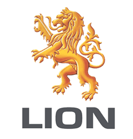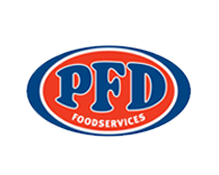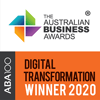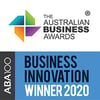Machine Learning
Machine learning is a field of artificial intelligence that uses algorithms to learn from data, in order to make predictions or recommendations.
What is machine learning? It is a field of artificial intelligence that develops algorithms and statistical models to enable machines to learn from data. It has been used in various industries, such as finance and healthcare, for predictive modelling. Machine learning can be applied to solve complex problems with accuracy and speed not achievable by humans alone.
The possibilities of machine learning are vast, ranging from medical diagnostics to autonomous vehicles. Its potential applications have captured the attention of researchers around the world who seek ways to explore its capabilities further. As a result, there has been an increase in research on this topic over the past few years.
This article will discuss how machine learning works, what it can do and where it could potentially be applied in the future. We will look at recent advances in this area and consider some current challenges facing researchers attempting to use machine learning technology. By understanding these topics we can gain insight into why machine learning is becoming increasingly important and relevant today.
What Exactly Is Machine Learning?
Machine learning is a type of artificial intelligence that enables computers to learn from data and experience. It helps machines recognise patterns in the data and make decisions without explicit instructions. Machine learning algorithms are used to identify trends, classify items, forecast future outcomes, detect anomalies, and more. Deep learning is a subset of machine learning that uses multiple layers of neural networks for complex tasks such as image or speech recognition. Supervised learning involves providing the system with training data and instruction; this allows it to develop its own rules by recognising patterns within the data. Unsupervised learning does not require any labels or pre-defined targets; instead, it relies on an algorithm to discover unknown patterns within the data. Data mining techniques are also applicable to machine learning applications as they can be used to uncover hidden insights from large datasets.
Data science is closely related to machine learning since both involve working with vast amounts of data sets and using analytical methods to gain meaningful information. To properly utilise machine learning algorithms, one must have knowledge about mathematics and statistics which will help them choose appropriate models depending on their project requirements. Furthermore, understanding basic concepts like linear algebra, calculus, probability theory etc., can go a long way in designing efficient solutions for difficult problems. Additionally, having some background knowledge about software engineering will aid developers when implementing models into real systems at scale. Therefore, it's important for anyone interested in pursuing a career in machine learning technology understand all these areas before getting started.
What Is The Main Purpose Of Machine Learning?
Machine learning is a rapidly growing field that utilises algorithms to uncover patterns in data sets. This technology has been used for decades, but recently it has become more popular due to advancements in computing power and access to large datasets. The main purpose of machine learning is to use data analysis techniques to build models which can then be applied to new data sets.
These models are typically based on either deep learning models such as artificial neural networks or shallow learning approaches like convolutional neural networks or bayesian network. Deep Learning involves the training of multiple layers of neurons within an artificial neural network using a labelled training set while shallow learning focuses more on finding relationships between variables using inductive logic programming or dimensionality reduction techniques. Unsupervised learning algorithms are also commonly used for clustering and classification tasks. All these methods have different time complexities associated with them depending on the type and size of dataset being used by the model.
The ultimate goal of machine learning is to gain insights from datasets so that further research can be done or it can be applied directly in order to make predictions about future events or outcomes. With advances in computer hardware and software, this technology is becoming increasingly powerful and accessible, allowing us to unlock hidden information buried beneath massive amounts of data points.
What Are The 3 Types Of Machine Learning?
Machine learning is a subset of Artificial Intelligence (AI) that gives computers the ability to learn without being explicitly programmed. It includes techniques and algorithms used by data scientists for supervised and unsupervised tasks, such as linear classifiers, neural networks, linear regressions, logistic regression, cross validation, reinforcement learning and unsupervised feature or anomaly detection.
These machine learning techniques are used in various applications from predicting stock prices to self-driving cars. Data scientists use these techniques to extract patterns from large datasets with minimal human intervention. Linear classifier models are simple Machine Learning models which classify data into two categories: positive or negative. Neural Networks are powerful Machine Learning models that can detect nonlinear relationships between different features of a dataset and output an accurate prediction. Logistic regression is another popular technique used in classification problems where it outputs probabilities rather than binary labels like 0 or 1. Cross validation is a method used to evaluate how well predictive model will generalise on new unseen data points while reinforcement learning deals with making decisions based on rewards received after each action. Finally, unsupervised feature/anomaly detection enables us to identify unusual or unknown patterns in our dataset without any prior information about them.
With the help of these tools and techniques, machines can be trained to solve real life problems more efficiently by understanding their environment better than humans ever could. For example, autonomous driving systems rely heavily on machine learning technologies for image processing and object recognition tasks so they can understand what’s happening around them in real time in order make sound decisions quickly and safely.
What Is The Difference Between AI And Machine Learning?
AI and Machine Learning are two related but distinct technologies that have changed the way businesses operate. AI, or Artificial Intelligence, is an umbrella term for a variety of computer systems designed to perform complex tasks such as natural language processing and anomaly detection that usually require human-like intelligence. It can be used to automate many processes and make decisions based on data analysis. Machine learning is a subset of artificial intelligence which enables computers to learn from large amounts of unlabelled data without explicit programming instructions. This allows machines to find patterns in data, recognise trends, and improve accuracy over time.
Machine learning algorithms use various methods like supervised learning, unsupervised learning, reinforcement learning, transfer learning, manifold learning etc., to create models with high prediction capabilities. Supervised learning involves feeding labelled datasets into machine learning algorithms while unsupervised learning requires inputting only raw unlabelled data sets. Azure Machine Learning provides tools like speech recognition and computer vision to support both types of machine leaning techniques. Natural Language Processing (NLP) is another popular application powered by machine learning; it uses deep neural networks trained on massive datasets to understand natural languages spoken by humans. Pattern recognition is also enabled through machine learning using sophisticated algorithms that discern objects within images or identify audiences for marketing campaigns.
In summary, AI is an overarching term covering many applications including those enabled by ML algorithms such as NLP, Computer Vision and Speech Recognition whereas ML exclusively focuses on developing predictive models using structured or unstructured data sets with its own set of specialised techniques like supervised/unsupervised/reinforcement/transfer/manifold etc.,learning approaches allowing machines to learn autonomously from their environment with ever increasing accuracy levels over time.
What Is An Example Of Machine Learning?
Machine learning is a subset of artificial intelligence (AI) which deals with the development of computer programs that can learn from data and make decisions on their own. It involves building algorithms, or models, to identify patterns in large sets of data without explicit instructions from humans. Examples of machine learning are everywhere today; self-driving cars use an AI system based on machine learning methods to navigate complex environments safely, image recognition software uses Azure Machine Learning models to recognise objects within images, and Google Brain’s neural networks use input layers to detect features within data similar to how the human brain does it.
In order for these algorithms to work properly, they must be trained by providing them with labelled examples so that they can begin recognising patterns in new data. Training models involve feeding them enormous amounts of data as well as providing feedback about whether the model correctly identified features within the data or not. This process creates more accurate results over time until finally the model has learned enough information and is able to accurately classify new inputs. The accuracy of the model depends largely on how many labelled examples were used during training and also what type of algorithm was employed - some types are better suited for certain tasks than others.
The power behind machine learning lies in its ability to take huge amounts of raw data, analyse it using sophisticated algorithms, and ultimately create meaningful predictions that would otherwise require manual effort if done manually by people. Despite this capability however, machines still require substantial guidance when dealing with highly complex problems since even with vast amounts of labelled examples there may still be areas where additional knowledge is needed before the task at hand can be accomplished successfully.
Conclusion
Machine learning is a type of artificial intelligence (AI) which has become increasingly popular in recent years. It is used to create computer programs that can learn from data and make decisions without being explicitly programmed to do so. Machine learning algorithms are able to identify patterns in large amounts of data, allowing them to be used for many applications such as image recognition, natural language processing, or predicting customer behaviour.
The main purpose of machine learning is to automate the process of making decisions or predictions by analysing large sets of data. This helps speed up decision-making processes while achieving greater accuracy than manual methods. There are three types of machine learning: supervised learning, unsupervised learning, and reinforcement learning. Supervised learning involves training models using labelled datasets; unsupervised learning uses unlabelled datasets; and reinforcement learning rewards desirable results with positive feedback loops.
In comparison to AI, which focuses on general problem solving abilities, machine learning specialises in recognising patterns in an automated way rather than relying on human insight alone. An example of machine learning would be a program that analyses customer purchase history in order to identify what products they might buy next time they shop online. As more businesses adopt machine learning, its impact will continue to grow and shape the future of automation and decision-making processes across all industries . and enable more efficient, personalised customer experiences.
PREVIOUS NARROW AI GLOSSARY TERM
NEXT NARROW AI GLOSSARY TERM
Machine Learning Definition
Exact match keyword: Machine Learning N-Gram Classification: Machine Learning Algorithms, Artificial Intelligence,Deep Learning Substring Matches: Machine, Learning Long-tail variations: "machine learning algorithms", "artificial intelligence" Category: Technology, Science Search Intent: Research, Education, Solutions Keyword Associations: Artificial Intelligence, Deep Learning, Data Science Semantic Relevance: Algorithms, Statistical Modelling, Neural Networks Parent Category: Technology Subcategories: Artificial Intelligence , Deep Learning , Data Science Synonyms: AI , DL , DS Similar Searches : Automated decision making , Adaptive learning , Natural language processing Geographic Relevance : Global Audience Demographics : Computer Scientists , Programmers , Researchers Brand Mentions : Microsoft Azure ML , Tensorflow (by Google) Industry-specific data : Performance Metrics , Automated Decision making Commonly used modifiers : Automated decision making , Adaptive learning , “Unsupervised” machine learning Topically Relevant Entities : Algorithms , Statistical modelling , Neural networks , Automated Decision Making"Larry will be our digital expert that will enable our sales team and add that technological advantage that our competitors don't have."
Kerry Smith
CEO, PFD Foods
$1.6 billion in revenue 
"Lion is one of Australasia’s largest food and beverage companies, supplying various alcohol products to wholesalers and retailers, and running multiple and frequent trade promotions throughout the year. The creation of promotional plans is a complicated task that requires considerable expertise and effort, and is an area where improved decision-making has the potential to positively impact the sales growth of various Lion products and product categories. Given Complexica’s world-class prediction and optimisation capabilities, award-winning software applications, and significant customer base in the food and alcohol industry, we have selected Complexica as our vendor of choice for trade promotion optimisation."
Mark Powell
National Sales Director, Lion
"At Liquor Barons we have an entrepreneurial mindset and are proud of being proactive rather than reactive in our approach to delivering the best possible customer service, which includes our premier liquor loyalty program and consumer-driven marketing. Given Complexica’s expertise in the Liquor industry, and significant customer base on both the retail and supplier side, we chose Complexica's Promotional Campaign Manager for digitalizing our spreadsheet-based approach for promotion planning, range management, and supplier portal access, which in turn will lift the sophistication of our key marketing processes."
Richard Verney
Marketing Manager
Liquor Barons

"Dulux is a leading marketer and manufacturer of some of Australia’s most recognised paint brands. The Dulux Retail sales team manage a diverse portfolio of products and the execution of our sales and marketing activity within both large, medium and small format home improvement retail stores. We consistently challenge ourselves to innovate and grow and to create greater value for our customers and the end consumer. Given the rise and application of Artificial Intelligence in recent times, we have partnered with Complexica to help us identify the right insight at the right time to improve our focus, decision making, execution, and value creation."
Jay Bedford
National Retail Sales Manager
Dulux

"Following a successful proof-of-concept earlier this year, we have selected Complexica as our vendor of choice for standardizing and optimising our promotional planning activities. Complexica’s Promotional Campaign Manager will provide us with a cloud-based platform for automating and optimising promotional planning for more than 2,700 stores, leading to improved decision-making, promotional effectiveness, and financial outcomes for our retail stores."
Rod Pritchard
Interim CEO, Metcash - Australian Liquor Marketers
$3.4 billion in revenue 
"After evaluating a number of software applications and vendors available on the market, we have decided to partner with Complexica for sales force optimisation and automation. We have found Complexica’s applications to be best suited for our extensive SKU range and large set of customers, being capable of generating recommendations and insights without burdening our sales staff with endless data analysis and interpretation.
Aemel Nordin
Managing Director, Polyaire
"DuluxGroup is pleased to expand its relationship with Complexica, a valued strategic partner and supplier to our business. Complexica’s software will enable DuluxGroup to reduce the amount of time required to generate usable insights, increase our campaign automation capability, personalise our communications based on core metrics, and close the loop on sales results to optimise ongoing digital marketing activity."
James Jones
Group Head of CRM, DuluxGroup
"Instead of hiring hundreds of data scientists to churn through endless sets of data to provide PFD with customer-specific insights and personalised recommendations, Larry, the Digital Analyst® will serve up the answers we need, when we need them, on a fully automated basis without the time and manual processes typically associated with complex analytical tasks.”
Richard Cohen
CIO, PFD Foods
$1.6 billion in revenue 
"As a global innovator in the wine industry, Pernod Ricard Winemakers is always seeking ways to gain efficiencies and best practices across our operational sites. Given the rise of Artificial Intelligence and big data analytics in recent times, we have engaged Complexica to explore how we can achieve a best-in-class wine supply chain using their cloud-based software applications. The engagement is focused on Australia & New Zealand, with a view to expand globally."
Brett McKinnon
Global Operations Director, Pernod Ricard Winemakers
"70% - 80% of what we do is about promotional activity, promotional pricing -- essentially what we take to the marketplace. This is one of the most comprehensive, most complex, one of the most difficult aspect of our business to get right. With Complexica, we will be best in class - there will not be anybody in the market that can perform this task more effectively or more efficiently than we can."
Doug Misener
CEO, Liquor Marketing Group
1,400+ retail stores 
"The key thing that makes such a difference in working with Complexica is their focus on delivering the business benefits and outcomes of the project."
Doug Misener
CEO, Liquor Marketing Group
1,400+ retail stores 
"Australia needs smart technology and people, and it has been a great experience for me to observe Complexica co-founders Zbigniew and Matt Michalewicz assemble great teams of people using their mathematical, logic, programming, and business skills to create world-beating products. They are leaders in taking our bright graduates and forging them into the businesses of the future."
Lewis Owens
Chairman of the Board, SA Water 
"Having known the team behind Complexica for some years ago now, I am struck by their ability to make the complex simple - to use data and all its possibilities for useful purpose. They bring real intelligence to AI and have an commercial approach to its application."
Andrew McEvoy
Managing Director, Fairfax Media - Digital 
"I have worked with the team at Complexica for a number of years and have found them professional, innovative and have appreciated their partnership approach to delivering solutions to complex problems."
Kelvin McGrath
CIO, Asciano 
“Working with Complexica to deliver Project Automate has been a true partnership from the initial stages of analysis of LMG’s existing processes and data handling, through scoping and development phase and onto delivery and process change adoption. The Complexica team have delivered considerable value at each stage and will continue to be a valued partner to LMG."
Gavin Saunders
CFO, Liquor Marketing Group 
“Complexica’s Order Management System and Larry, the Digital Analyst will provide more than 300 Bunzl account managers with real-time analytics and insights, to empower decision making and enhanced support. This will create more time for our teams to enable them to see more customers each day and provide the Bunzl personalised experience.”
Kim Hetherington
CEO, Bunzl Australasia 
"The team behind Complexica develops software products that are at the cutting edge of science and technology, always focused on the opportunities to deliver a decisive competitive edge to business. It has always been a great experience collaborating with Matthew, Zbigniew and Co."
Mike Lomman
GM Demand Chain, Roy Hill Iron Ore 
"The innovations that the Complexica team are capable of continue to amaze me. They look at problems from the client side and use a unique approach to collaborating with and deeply understanding their customers challenges. This uniquely differentiates what they bring to market and how they deliver value to customers."
John Ansley
CIO, Toll Group 
"Rather than building out an internal analytics team to investigate and analyse countless data sets, we have partnered with Complexica to provide our sales reps with the answers they need, when they need them, on a fully automated basis. We are excited about the benefits that Larry, the Digital Analyst will deliver to our business.”
Peter Caughey
CEO, Coventry Group 
“Complexica’s Order Management System and Larry, the Digital Analyst will provide more than 300 Bunzl account managers with real-time analytics and insights, to empower decision making and enhanced support. This will create more time for our teams to enable them to see more customers each day and provide the Bunzl personalised experience.”
Kim Hetherington
CEO, Bunzl Australasia 
"After an evaluation process and successful proof-of-concept in 2016, we have chosen to partner with Complexica to upgrade the technological capability of our in-field sales force. The next-generation Customer Opportunity Profiler provided by Complexica will serve as a key tool for sales staff to optimise their daily activities, personalise conversations and interactions with customers, and analyse data to generate actionable insights."
Stephen Mooney
Group Sales Capability Manager, DuluxGroup
$1.7 billion in revenue
"After evaluating a number of software systems available in the marketplace, we have ultimately selected Complexica as our vendor of choice for sales force automation and CRM. Given the large SKU range we carry and very long tail of customers we serve, Complexica’s applications are best suited to deal with this inherent complexity without burdening our staff with endless data entry."
Nick Carr
CEO, Haircaire Australia
Australia's largest distributor of haircare products
“Asahi Beverages is Australia’s largest brewer, supplying a leading portfolio to wholesalers and retailers, including some of Australia’s most iconic brands. Last year Asahi Beverages acquired Carlton & United Breweries, which is its Australian alcohol business division. To harness the strength of our expanded portfolio, we partner with our customers to run multiple and frequent trade promotions throughout the year, delivering long-term growth for both our business and theirs. Given the inherent complexity in optimising promotional plans and our continued focus on revenue and growth management, we have selected Complexica as our vendor of choice after a successful Proof-of-Concept of its world-class optimisation capabilities.”
Kellie Barnes
Group Chief Information Officer
Asahi Beverages
"Dulux is a leading marketer and manufacturer of some of Australia’s most recognised paint brands. The Dulux Retail sales team manage a diverse portfolio of products and the execution of our sales and marketing activity within both large, medium and small format home improvement retail stores. We consistently challenge ourselves to innovate and grow and to create greater value for our customers and the end consumer. Given the rise and application of Artificial Intelligence in recent times, we have partnered with Complexica to help us identify the right insight at the right time to improve our focus, decision making, execution, and value creation."
Jay Bedford
National Retail Sales Manager, DuluxGroup
"At Liquor Barons we have an entrepreneurial mindset and are proud of being proactive rather than reactive in our approach to delivering the best possible customer service, which includes our premier liquor loyalty program and consumer-driven marketing. Given Complexica’s expertise in the Liquor industry, and significant customer base on both the retail and supplier side, we chose Complexica's Promotional Campaign Manager for digitalizing our spreadsheet-based approach for promotion planning, range management, and supplier portal access, which in turn will lift the sophistication of our key marketing processes."
Richard Verney
Marketing Manager, Liquor Barons































